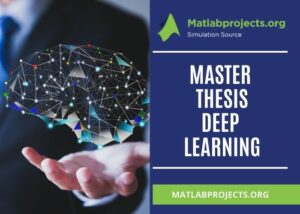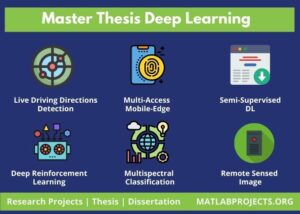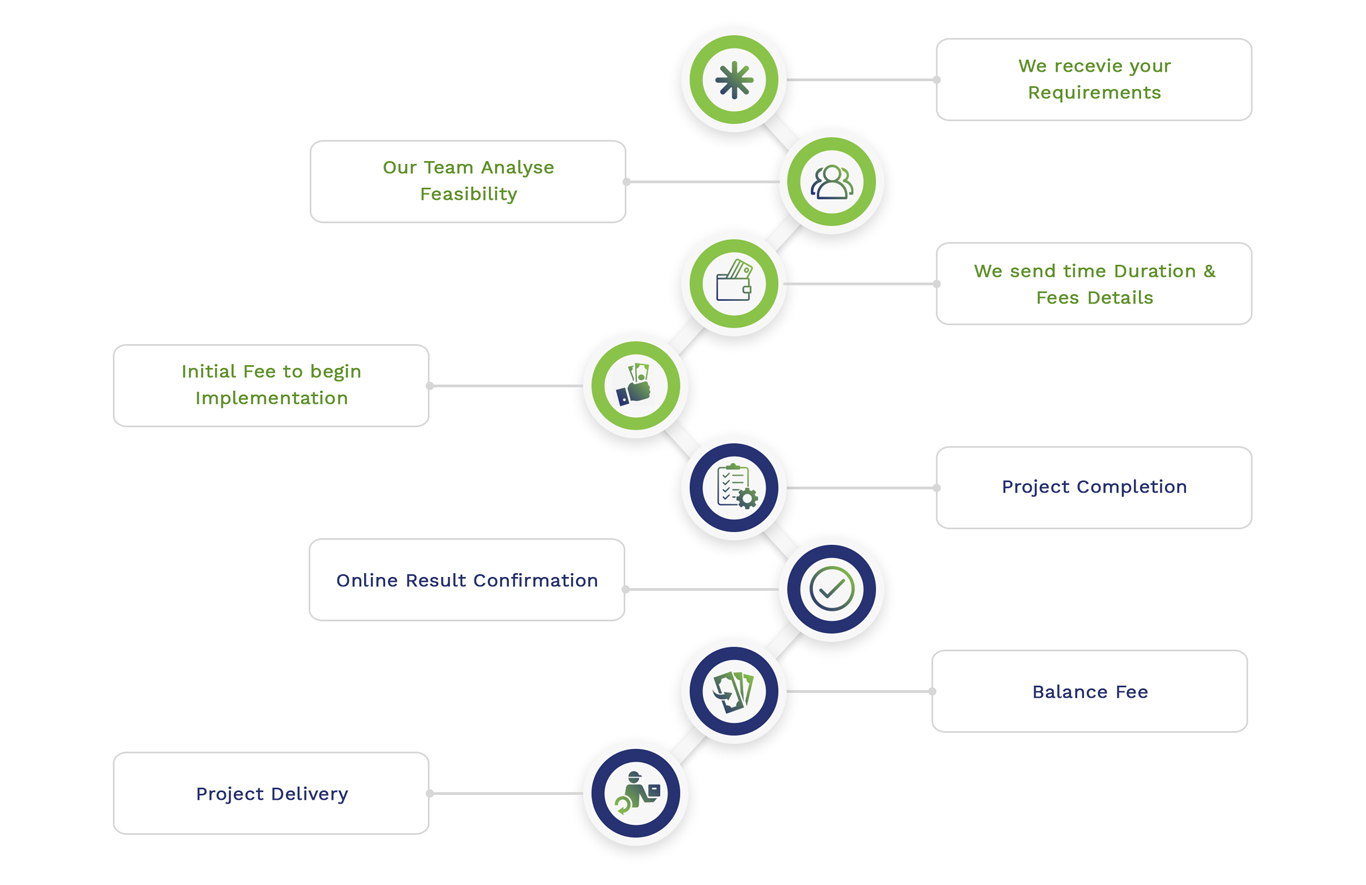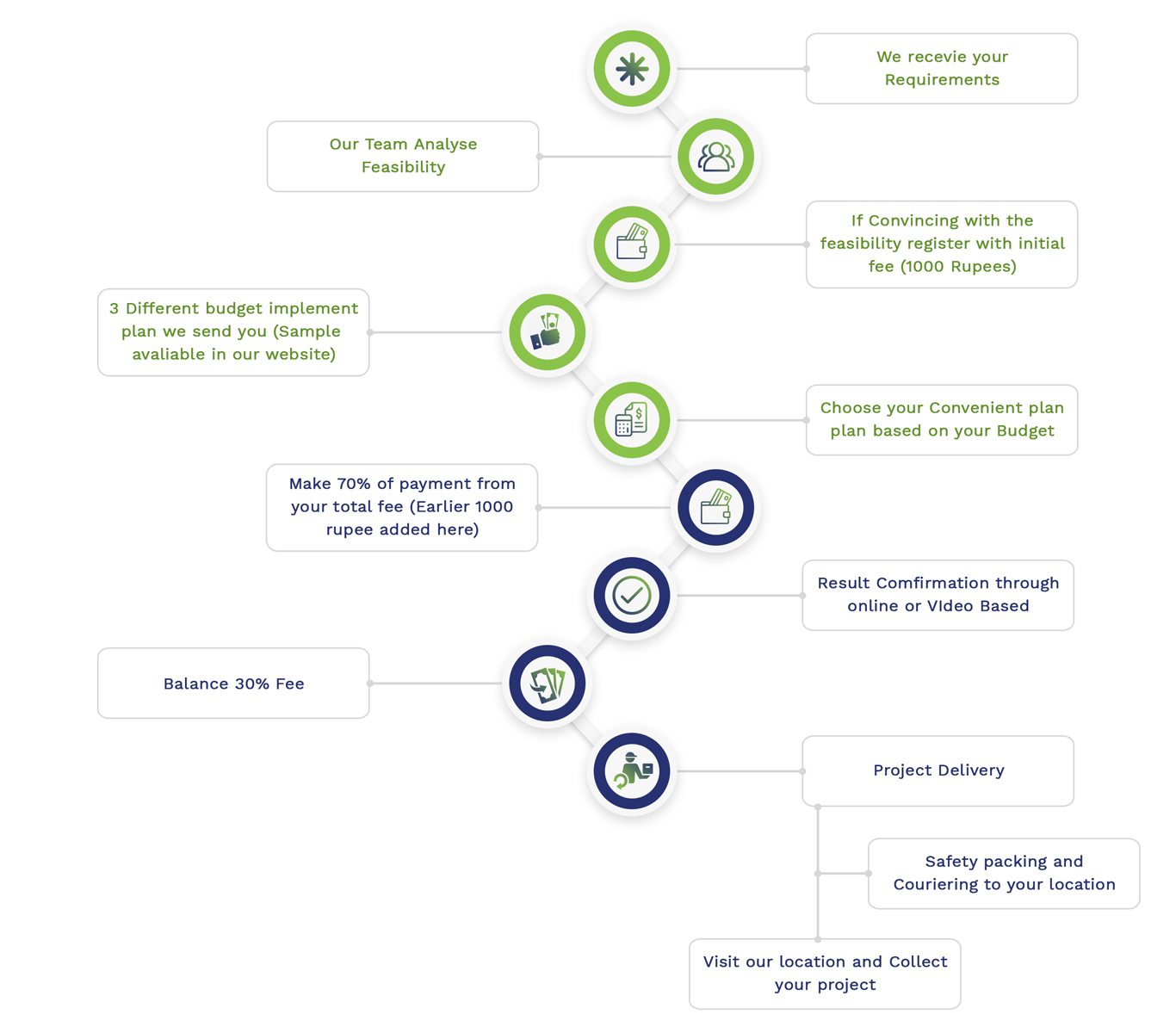Deep learning is a technique that extends from machine learning techniques. It is addressed for automatic feature extraction capability. Since it employs more number of features mapping methods in every step of the deep learning model. Compare to other characteristics of deep learning, features maps are most important and introduced to achieve accurate classification. Hence, our research team has a broader sense of performing feature-map selection in deep learning modelling.
Are you searching for the finest research and development information for MASTER THESIS DEEP LEARNING? Then this article is satisfying your requirements!!!
What is Deep Learning?
In short, deep learning is an inherited approach from machine learning to learn patterns automatically and classify accordingly. This task can be performed on image, text, video, and audio. To achieve the objective of deep learning, it uses the architecture of a neural network. Here, this neural network artificially imitates human brain-behavior through a multi-layered approach.
The multi-layered approach deeply gets into raw data and grabs the different features of data. So, it is referred to as a “deep” learning technique. In the conventional method, it has only 3 layers as input, hidden, and output layers. The deep learning method uses nearly 100+ layers for accurate object classification.
In specific, the layers of deep learning technique uses high computing power to learn and handle large-scale data for complex pattern identification. Some of the main real-time applications are audio processing, self-driving vehicles, face emotion analysis, visual representation, etc. Overall, the efficiency of the deep learning model is evaluated through different performance metrics. And some of the key metrics of deep learning are given as below,
Important Deep Learning Parameters
- Epoch
- Size of Batch
- Optimizer
- Rate of Learning
- Epsilon Value
- Co-efficient of beta
- Distribution Method
Now, we can see the comparison of deep learning and conventional methods like machine learning. This helps you to identify the efficiency of the deep learning than existing ones. For that, we have specified the workflow of machine learning and deep learning algorithms followed by their Characteristics. All these aspects collectively made deep learning an advanced technique for developing and automation and control systems. On knowing the importance of deep learning, our resource team has framed an infinite number of innovative master thesis deep learning topics from top research areas.
Workflow of ML and DL Algorithms
- Deep Learning
- Step 1 – Load the input data
- Step 2 – Apply deep learning algorithm
- Step 3 – Visualize the processed result
- Machine Learning
- Step 1 – Load the input data
- Step 2 – Filter the essential features via Feature Extractor
- Step 3 – Transfer the extracted feature into the ML algorithm as input
- Step 4 – Visualize the processed result
Characteristics of ML and DL Algorithms
- Execute Complex Problems
- Deep Learning – Applicable for all sorts of complex problems
- Machine Learning – Not applicable for complex problems
- Large-scale Data
- Deep Learning – Huge-scale structured and unstructured data
- Machine Learning – Huge-scale structured data
- Automated Feature Extraction
- Deep Learning – Automatically extracts the features from analyzed data for similar objects classification
- Machine Learning – Manually extracts patterns based on labeled data
- High Performance in Large-scale Data
- Deep Learning – Higher performance in huge-scale data
- Machine Learning – Lower performance in huge-scale data
On collecting innovative research ideas, we have recognized several research holes in the recent deep learning field. Research gaps are nothing but important research issues that are failing to be addressed properly or not even recognized. On recent team has identified all these research gaps to provide modern research solutions. We have collected/designed suitable techniques to solve those problems. Further, if you need more information about research ideas of these research gaps then approach us.
Research Issues in Deep Learning
- Lack of customized parameters because of varied topology
- Inappropriate scaling over various image classes
- Add-on data processing for visualization
- Presence of huge-size extractors
- Lack of active neurons in first two layers
- Threat of data loss because of bottleneck representations
- Lack of high-level feature extraction
- Usage of fully connected layers at high-cost
- Artifacts alias in features map because of huge-size extractors
Next, we can see the applications of deep learning. Due to the increased advantages of deep learning, it is broadly employed in several research and real-world applications. Our developers are here to support you in both real-time and non-real-time applications. Since we have developed numerous deep learning projects in various aspects and scenarios master thesis deep learning. And, some of the important applications are given in the followings,
Deep Learning Applications
- Autonomous Driving
- Self-Driving Car Control
- Pedestrian Walking Speed Detection
- Traffic Sign Identification
- Smart Lane Detection
- Marketing
- Target Detection
- Computerized Email Marketing
- Computer Vision / Graphics
- Facebook Face Identification
- Number Plate Recognition
- Natural Language Processing (NLP)
- Photo Tagging and Segmentation
- Sentiment and Emotion Analysis
- Medical Analysis
- Anomaly Identification
- Tumor Cell Recognition
- Web-Data Retrieval
- Text Translation
- Image and Text Search Engine
- Web Ontologies
Further, our experts are willing to make you aware of recent research trends of deep learning. These research ideas are listed to present you with the current research directions/demands of deep learning. Usually, we have the habit of modernizing our repository of current trends to give you up-to-date information. For that, we undergo research and review on present scientific developments of master thesis deep learning. So, we have more than enough technical resources to fulfill your research requirements.
Top 5 Master Thesis Deep Learning Research Topics
- PIR Sensor-based Live Driving Directions Detection
- Learning Approach for Autonomous Automobiles in Multi-Access Mobile-Edge
- Semi-Supervised DL for Intruders and Non-Intruder Classification
- Deep Reinforcement Learning for Reliable Traffic Load Balancing
- Deep Learning-based Multispectral Classification in Remote Sensed Image
Next, we can see in what way the training process takes place in deep learning. In this, we have highlighted 3 main aspects of the training process as parameters used for assessing training, debugging of training, and hyperparameters settings. Our developers have sufficient practice in training complex deep learning models. So, we are flexible to handle large-scale datasets, heterogeneous environments, varied topology, and other technical bottlenecks. Let’s have a quick look over the procedure to execute the training process in deep learning.
Deep Learning Training Process
- Tune Hyperparameters using Bayesian Optimization
- Plot Training Parameters
- Validation Accuracy / Loss
- Training Accuracy / Loss
- Smoothed Training Accuracy / Loss
- Bug Fixing Training
- Customized Output Methods
- Visualization
- Stopping Condition, etc.
- Stop and Verify the Current Conditions
- Store / Load Checkpoints in Networks
For your information, here we have given you some widely used deep learning strategies. As mentioned earlier, we have sufficient knowledge to identify suitable research solutions. In the case of complexity, we design the best new strategies to solve those issues smoothly.
Overall, we are good to work with both simple and complex scenarios. Before proposing strategies for your handpicked problems, we thoroughly analyze the complexity degree of problems and provide solutions accordingly.
Best searching strategy for deep learning
- A * Search Approach
- Depth-First Search Approach
- Hill-Climbing Search Approach
- Local Beam Search Approach
- Breadth-First Search Approach
- Brute-Force Search Approach
- Pure Heuristic Search Approach
- Simulated Annealing Approach
- Bidirectional Search Approach
- Greedy Best First Search Approach
- Uniform Cost Search Approach
- Iterative Deepening Depth-First Search Approach
Moreover, we also give our support in handpicking suitable development platforms. Since development technologies are also more important for the practical implementation of your research ideas. For applying your proposed research solutions, we surely need supporting libraries, packages, modules, or toolboxes. Therefore, get the experts’ advice like us before confirming your development platforms. We assure you that we give end-to-end assistance in developing your deep learning project topic from development tool selection to experiment result analysis.
Top 4 Deep Learning Platforms
- Keras
- DeepLEearning4J (DL4J)
- Torch
- TensorFlow
Now, we can see our recently collected master thesis topics for deep learning. All these topics are based on real-time applications that focus on automation and control systems. Further, we are ready to provide more topics in the required research areas of deep learning. By the by, we ensure you that our topics are original with a high order of future scope. This future scope helps you to do more future research work for further studies.
Top 10 Deep Learning Master Thesis Topics
- Customized Recommender Systems
- Smart Spam and Email Classification
- Optimization of Energy Consumption in Data Warehouse
- Face Emotion Identification using Sentiment Analysis
- Early-Stage Health Disorder Recognition and Diagnosis
- Automated Custom-based Video Suggestion in Netflix
- Automation of Manufacturing Factory
- Tracking of Traffic Speed using Google Maps
- Prediction of Customer Demand and Purchase in Amazon E-sale
- Cybersecurity for Fraudulent Activities Detection
In the above, we have already seen the list of strategies used for deep learning projects. To the continuation, here we have prescribed algorithms in two major classifications of algorithms that are extensively used in deep learning and shallow feature learning. All these algorithms are currently used in the development of the latest master thesis deep learning research topics. We support you not only on these algorithms but also on other advanced techniques. Depending on the research objectives, we recommend you best-fitting algorithms/techniques for your project.
Deep Learning Algorithms
- Deep Learning
- 2D or 3D Inputs (ResNet, VGGNet, AlexNet, CNNs and GoogleNet)
- ID Inputs (SDA, DBNs, and DAE)
- Add-on Methods (RNNs)
- Shallow Feature Learning
- Manifold Learning Techniques (LE, Isomap, LTSA, and LLE)
- Linear Techniques (LDA, GDA, PCA, and KPCA)
- Add-on Techniques (ECOC-EFE and more)
Additionally, we have listed the major parameters used for evaluating performance in deep learning. These metrics play a major  role in explicitly presenting the efficiency of your proposed system. Generally, there are different parameters like system parameters, network parameters, stimulation parameters, etc.
role in explicitly presenting the efficiency of your proposed system. Generally, there are different parameters like system parameters, network parameters, stimulation parameters, etc.
All these parameters specifically enhance the particular aspects of the proposed system. For deep learning, regression and classification are primary factors that influence the performance of the deep learning model. So, here we have given a few metrics of these primary factors. Further, we also suggest more depending on your project goals.
Deep Learning Performance Metrics
- Regression
- MAE
- RMSE
- MSE
- Classification
- AUC
- Accuracy
- Balanced Accuracy
So far, we have debated on a different perspective of the research and development phases of deep learning. Now, we can see our third significant phase of deep learning study as “thesis writing”. Our technical native writers have the strong groundwork in conveying your research thoughts into a novel chain of words. In this, we present all your research achievements and your efforts to make achievements in a well-organized format. Generally, the master thesis is classified into several chapters as introduction, literature survey, methodologies, result in analysis, and conclusion.These 5 chapters may differ further based on your institution’s needs. Here, we have given you a shortlist of things that we follow in writing your master thesis for fast acceptance.
- Need, importance, and objectives of the research
- Research problems and solutions
- Review over relevant research papers
- Pros and Cons of existing techniques
- Problem-solving algorithms
- Advance techniques
- Mathematical formulas
- Experimental result analysis
- Collective proofs / evidences
- Achievements of research objectives
- Overview of research work (objective, needs, techniques, results)
- Contribution of research for social development
- Future research suggestion
Overall, we give you complete deep learning research assistance on all the phases of your PhD / MS study. Further, we also extend service for final year students who are willing to do a project in deep learning. We assure you that our delivery research products will be of 100% quality, 100% accuracy, and 0% plagiarism master thesis deep learning. So, hold your hands with us to make stunning success in your research career.
Subscribe Our Youtube Channel
You can Watch all Subjects Matlab & Simulink latest Innovative Project Results
Our services
We want to support Uncompromise Matlab service for all your Requirements Our Reseachers and Technical team keep update the technology for all subjects ,We assure We Meet out Your Needs.
Our Services
- Matlab Research Paper Help
- Matlab assignment help
- Matlab Project Help
- Matlab Homework Help
- Simulink assignment help
- Simulink Project Help
- Simulink Homework Help
- Matlab Research Paper Help
- NS3 Research Paper Help
- Omnet++ Research Paper Help
Our Benefits
- Customised Matlab Assignments
- Global Assignment Knowledge
- Best Assignment Writers
- Certified Matlab Trainers
- Experienced Matlab Developers
- Over 400k+ Satisfied Students
- Ontime support
- Best Price Guarantee
- Plagiarism Free Work
- Correct Citations
Expert Matlab services just 1-click

Delivery Materials
Unlimited support we offer you
For better understanding purpose we provide following Materials for all Kind of Research & Assignment & Homework service.
 Programs
Programs Designs
Designs Simulations
Simulations Results
Results Graphs
Graphs Result snapshot
Result snapshot Video Tutorial
Video Tutorial Instructions Profile
Instructions Profile  Sofware Install Guide
Sofware Install Guide Execution Guidance
Execution Guidance  Explanations
Explanations Implement Plan
Implement Plan
Matlab Projects
Matlab projects innovators has laid our steps in all dimension related to math works.Our concern support matlab projects for more than 10 years.Many Research scholars are benefited by our matlab projects service.We are trusted institution who supplies matlab projects for many universities and colleges.
Reasons to choose Matlab Projects .org???
Our Service are widely utilized by Research centers.More than 5000+ Projects & Thesis has been provided by us to Students & Research Scholars. All current mathworks software versions are being updated by us.
Our concern has provided the required solution for all the above mention technical problems required by clients with best Customer Support.
- Novel Idea
- Ontime Delivery
- Best Prices
- Unique Work
Simulation Projects Workflow

Embedded Projects Workflow



 Matlab
Matlab Simulink
Simulink NS3
NS3 OMNET++
OMNET++ COOJA
COOJA CONTIKI OS
CONTIKI OS NS2
NS2






